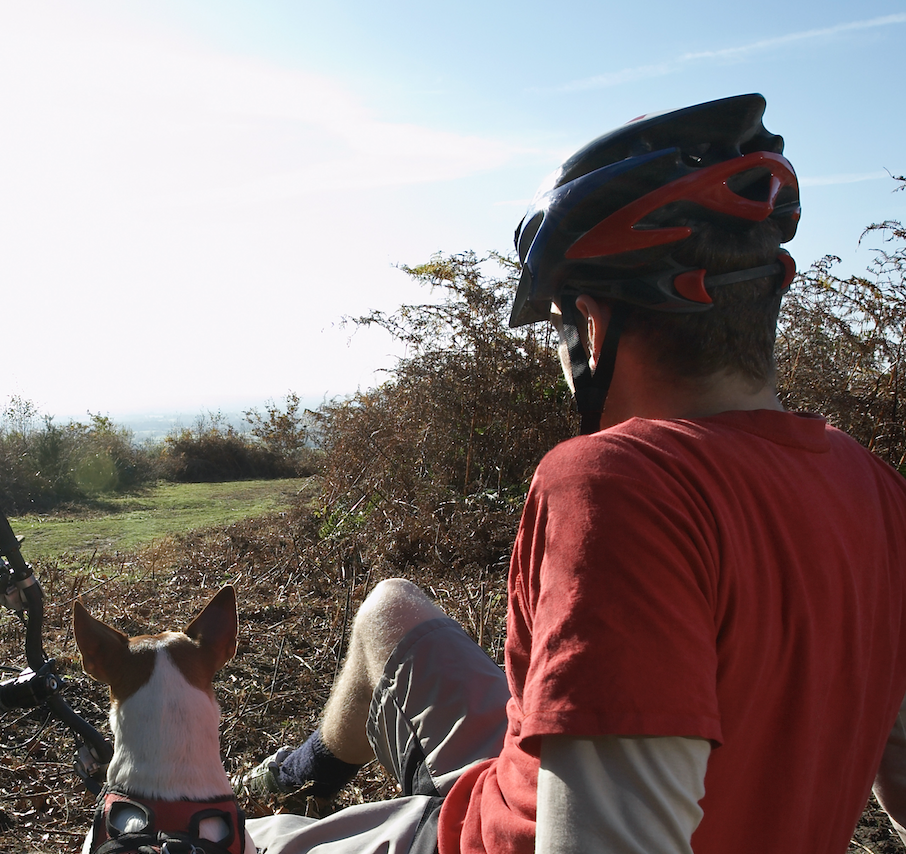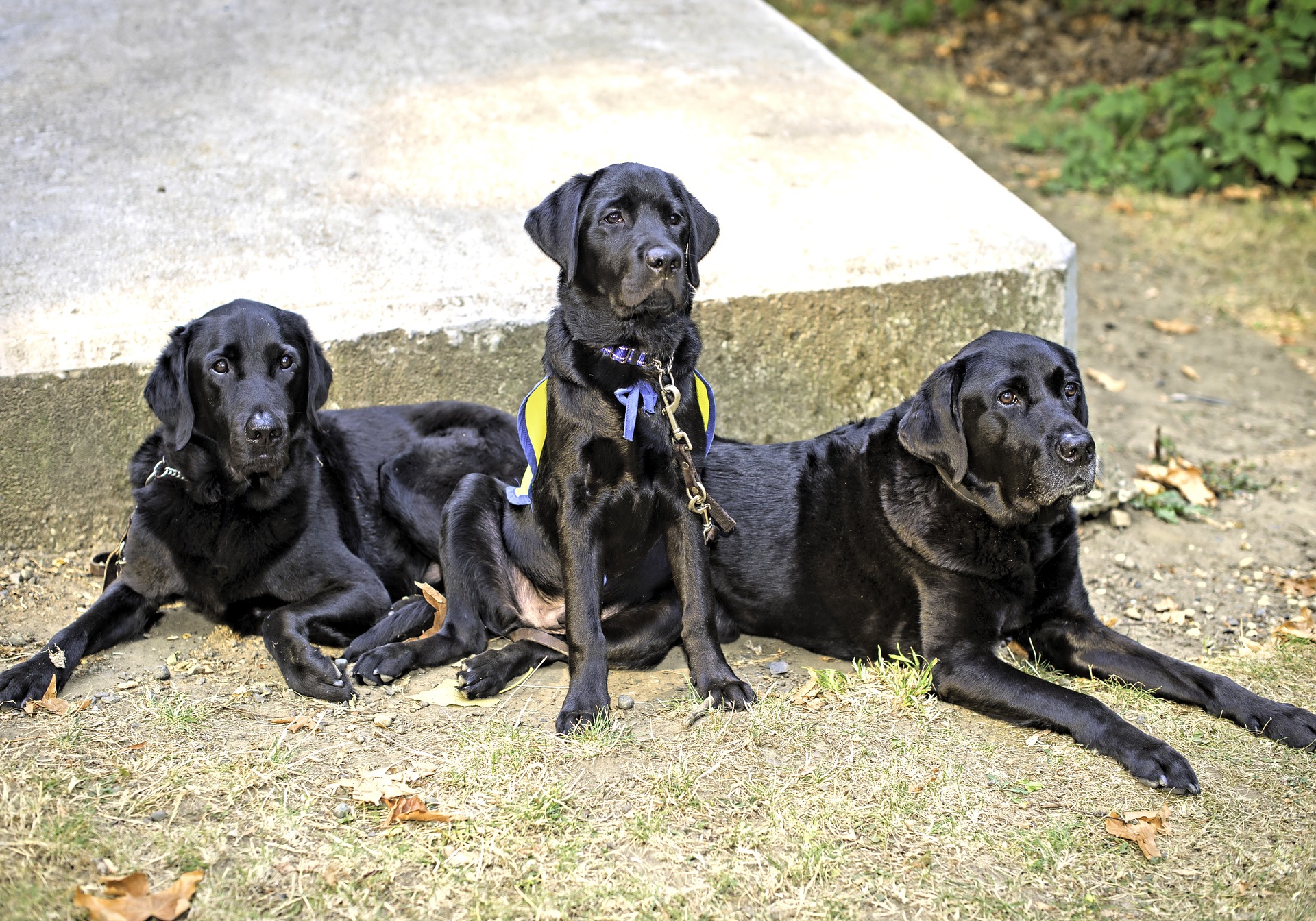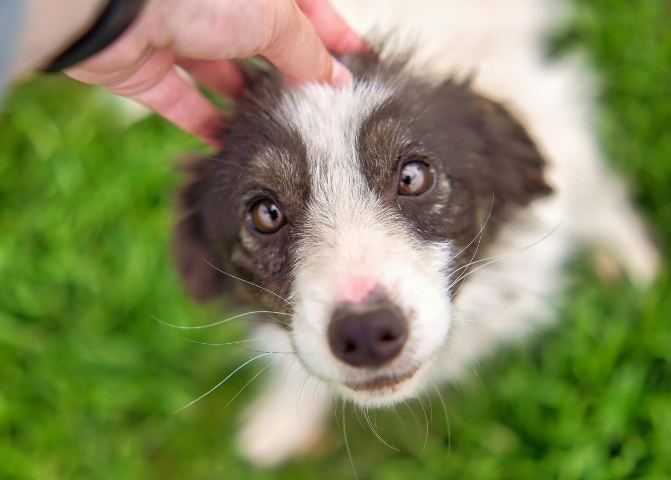
Whether a physical or a mental disability, people dealing with any type of impairment, can greatly benefit from a service dog. It is not only the specific tasks that the dog performs for them but the confidence and motivation that their presence brings to the person’s life.
The types of tasks or specific work that these animals do, vary from person to person. They need to be adapted to the dog’s physical and personal features and the individual’s needs and lifestyle.
Sometimes, when talking about support animals, the public may think of one specific task, that helps mitigate the symptoms of one specific disability. This is not the entire picture... A service dog can be trained to perform various tasks, since one disability is usually related to different symptoms, thus needs.
Lupus is a type of disease, that can have a negative impact on different organs, tissues, and parts of the body. Here comes the question- If you are diagnosed with Lupus, can a service dog help you? If yes, what type of service animal do you need to look for?
Lupus - Causes
Lupus is an autoimmune disease, which means that your immune system attacks your body (its organs and tissues). Different organs and body systems can be affected by this illness, such as the brain, the heart, the blood cells, the lungs, and the kidneys. Joint and skin issues can also occur as a symptom of Lupus.
This disease is rather hard to diagnose, as its symptoms are similar to the symptoms of other diseases.
It is believed, that genetic predisposition combined with certain environmental factors is the main cause of the disease. However, the exact cause for developing this illness is, is still unknown.

Lupus- Potential Triggers
There are several factors, including environmental ones, which can contribute to developing Lupus.
Stress
Stress can be considered the plague of the modern time, which is among the main triggers for many diseases. Work-related stress as well as stress due to leading a hectic and unhealthy life can trigger Lupus.
Infections
Infections can trigger Lupus or lead to relapse in people.
Sunlight
This might seem to be an unexpected trigger, but sunlight can trigger Lupus in people who are predisposed to this disease and causes sun lesions.
Medication
Antibiotics as well as medication for seizures and blood pressure may induce Lupus. Luckily, the symptoms disappear once the intake of certain medication stops. However, there are also cases, where the symptoms do not fade out even if the medication intake stops.
What People Are Mostly Affected?
It is thought that women are more affected by Lupus than men.
People who are between the ages of 15 and 45 years old are most likely to be affected by Lupus.
Hispanics, Asian Americans, and African Americans are likely to be more predisposed to Lupus than people of other races.
Lupus - Symptoms
Knowing what symptoms a certain disease has, helps us determine what types of tasks a service dog might be helpful with. Symptoms of Lupus can vary from person to person and may include:
Lethargy, Fatigue, Joint issues, Chest pain, Fever, Hair loss, Sensitivity to light, Anemia, Kidney/Lung Issues, Rashes (the so-called butterfly rash on the face), Mouth sores, Eye problems, Blood clotting.
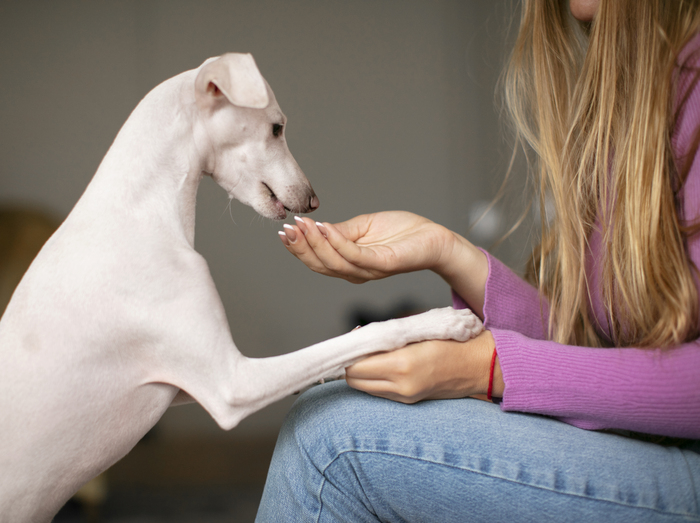
What Do Service Dogs Do?
Service animals are dogs (or miniature horses in several U.S. states), who have been individually trained to perform specific tasks directly related to a disability. These tasks depend on the disability and the person’s needs and be both physically and mentally related.
How Can a Service Animal Help Individuals with Lupus?
In so many ways! Lupus can lead to further complications, related to seizures, strokes, and visual and mobility issues, which can also worsen the emotional and mental state of a person.
Mobility Tasks
Individuals who have joint issues or experience any mobility-related problems due to Lupus can benefit from a mobility type of service dog, who helps them keep balance (i.e. while going up/down the stairs), brings them medication and other needed items, or picks up items off the floor.
Environmental Tasks
Environmental tasks that a service dog can be trained to perform are opening/closing doors or cabinets, pushing the call button on an elevator, or putting the curtains down (people with light sensitivity can greatly benefit from that task).
Guide Tasks
Individuals who got their eyesight affected by Lupus can benefit from a service dog to help them navigate their surroundings. Guide dogs are a popular type of service animal, that assist people with visual impairments and can also help people with eye infections to navigate their surroundings more easily.
Medical Alert Tasks (Diabetes, Strokes, Cardiac Issues)
People, who can develop Diabetes, or who start having epileptic and cardiac episodes, due to Lupus, can improve their life thanks to the presence of an alert service dog. Medical alert tasks are usually based on scent training. Dogs can be trained to detect the specific odor of their owner during an episode and exhibit a specific behavior as a response to it. Due to the specifics of these tasks, dogs with large and long noses are preferred as medical alert dogs.
Psychiatric Service Dog Tasks
Coping with a physical illness, especially if it has been triggered by stress, can drastically worsen the mental health and general well-being of a person. Psychiatric Service Dogs (PSDs), can be of great help to individuals dealing with various conditions due to the wide range of tasks these dogs can be trained to do.
Providing Deep Pressure Therapy and tactile stimulation are among the most common tasks a PSD is usually trained to do. These tasks have proved rewarding to people by bringing them comfort and reducing stress, anxiety, and depression.
If a person’s mental health has worsened a lot due to Lupus, a PSD that alerts the individual to anxiety, brings them medication, grounds them (brings them back to reality), guides them to a safe place, and provides crowd control while in public, can be really helpful.
Dog Breeds to Consider
There are no limitations on what dog breeds can be trained as service dogs unless certain breeds are banned in the country or region in general. Friendly, intelligent, people-oriented, and trainable dogs are considered a good choice for people looking for support dog assistance. The Golden Retriever, the Labrador Retriever, the Poodle, and the Border Collie are considered preferred dog breeds to be trained as service animals. If you put the emphasis on emotional support, and not on physical tasks, then a dog of a small breed such as the Yorkshire Terrier, the Cavalier King Charles Spaniel, the Maltese, the Chihuahua, the Havanese, etc., may become your future assistance dog.
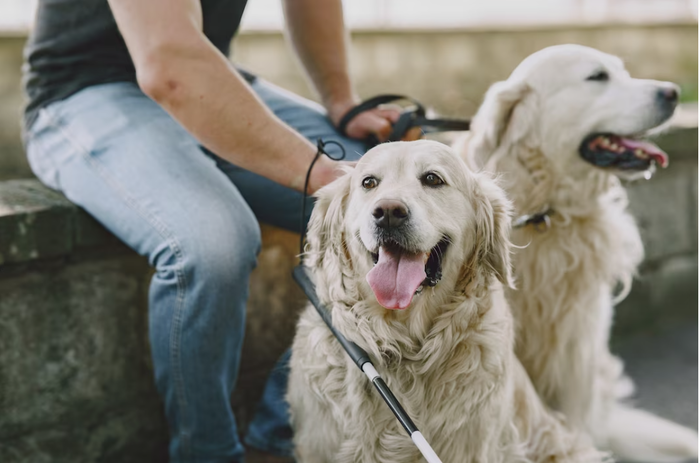
Do All People with Lupus Qualify for a Service Dog?
If you have consulted a licensed healthcare provider, and they have issued a medical letter that recommends the use of a service dog, then-yes, you do qualify!
Alternatively, you can be recommended an Emotional Support Animal that will provide you with comfort and companionship, without performing specific tasks. ESAs have also proved very rewarding for improving emotional state and general well-being. However, they do not perform specific tasks and are not considered service animals.
You should make sure that the medical letter is legitimate, written on letterhead, and stamped and signed by the licensed health provider.
How to Get a Service Dog for Lupus?
The first step is to clarify for yourself what your needs are and what tasks you will benefit from. As mentioned above, consulting a licensed health provider is also needed.
If you do not have a dog, you will need to think of what type of dog will suit you the most. The size, the breed, the energy level, the need for mental and physical stimulation, and the level of shedding and barking are among the characteristics you should think about. Getting a dog should be a decision made very carefully so that both the owner and the animal can benefit from it.
You can contact a shelter or a breeder to get a dog, as there are no restrictions on what types of dogs can become service animals. Based on your location (e.g. in the UK or Germany), certain breeds may be prohibited, so you should check this too. Other countries like the US, do not restrict the breeds that can become service animals.
Another option would be to contact an organization/school, that offers trained service animals and apply for one. Possible challenges here are the costs that may reach up to $20,000-$30,000 and the long waiting lists if you opt for a non-profit organization.
If you decide to get a dog yourself, you can either have them trained by a professional organization/school/trainer or train them yourself. In the second case, you can also benefit from a training program that offers structured lessons and guidance from tutors.
Owner-trained service dogs are accepted in many countries, such as the US, some Canadian provinces, Mexico, the UK, the Netherlands, etc. If you can prove that you and your dog have gone through an evaluation by a third party and are a legitimate team, you should not experience any problems visiting public places with an owner/self-trained dog in such countries.
In case you already have a dog, you may want to consider training them as your service dog to assist you in your daily life. Whether this will be possible or not, depends on your dog’s health, temperament, personality, attachment to you, and age (although we believe that you can teach an old dog new tricks). You should, of course, consider the local laws and whether an owner-trained service dog will be recognized or not.



